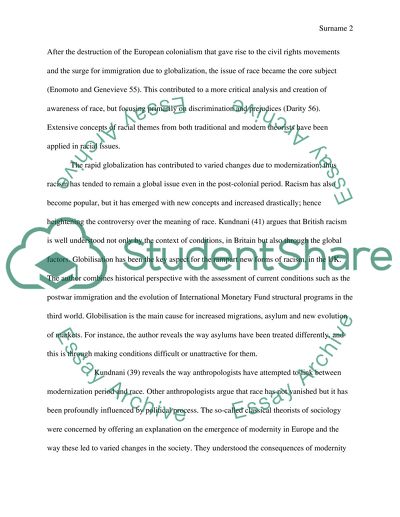Cite this document
(“Has racism in the UK disappeared in the 21st century or merely taken Essay”, n.d.)
Retrieved de https://studentshare.org/anthropology/1476548-has-racism-in-the-uk-disappeared-in-the
Retrieved de https://studentshare.org/anthropology/1476548-has-racism-in-the-uk-disappeared-in-the
(Has Racism in the UK Disappeared in the 21st Century or Merely Taken Essay)
https://studentshare.org/anthropology/1476548-has-racism-in-the-uk-disappeared-in-the.
https://studentshare.org/anthropology/1476548-has-racism-in-the-uk-disappeared-in-the.
“Has Racism in the UK Disappeared in the 21st Century or Merely Taken Essay”, n.d. https://studentshare.org/anthropology/1476548-has-racism-in-the-uk-disappeared-in-the.


